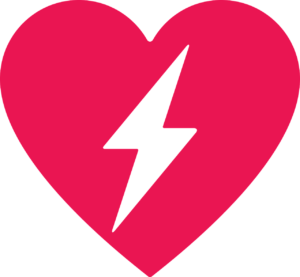CINCINNATI, OH – January 2, 2023 – At the Monday Night Football game between the Cincinnati Bengals and the Buffalo Bills on January 2nd, Buffalo safety Damar Hamlin tackled Cincinnati wide receiver Tee Higgins who had caught a pass. After getting up, Hamlin collapsed backwards from a cardiac arrest. Within seconds, Buffalo’s medical staff performed cardio-pulmonary resuscitation and used an automated external defibrillator (AED) to restore normal heart rhythm. He was transported to the University of Cincinnati Medical Center for further medical care. Hamlin was admitted to the intensive care unit in critical condition.
There has been much speculation about the cause of Damar Hamlin’s cardiac arrest. Some reasons may be congenital or traumatic. Most cardiac arrests in young people are due to a congenital heart condition. Many medical specialists have speculated that Hamlin sustained commotio cordis, a rare but serious condition that can occur after blunt trauma to the chest, because it appeared that Hamlin slammed his chest into the shoulder of Higgins as he made the tackle. The force must be strong enough and occur at a very specific moment between heart beats to have an effect on the heart. These factors can cause a harmful disruption of the heart rhythm resulting in the loss of the ability of the heart to pump blood to the body, depriving the body, including vital organs like the brain, from getting oxygen. Cardiac resuscitation within minutes is essential to keep the person alive. Any delay of more than 3 minutes increases the risk of death to nearly 100%.
Commotio cordis is more common when the chest is struck by a ball or a puck, as in lacrosse, baseball or hockey. This injury occurs more frequently in young people; the average age is about 15 years old. The heart may be at more risk in young athletes because of a thinner chest wall than in older participants.
As told to CBS Sports, Dr. Aaron Baggish, a cardiologist from Massachusetts General- Brigham Hospitals and sports cardiology specialist, “as a fan who also happens to be a doctor, I’m cognizant of the risk these athletes assume when they decide to play these sports, and I support their decisions to do so, but it’s always sad when something like this occurs.” He hopes that medical teams “need to be ready for the unexpected catastrophe.”
Listen to the full report below:
Contact: Dick Needleman, Health reporter, 103.3 AshevilleFM, [email protected]
More Posts for Show: Asheville FM News Hour
